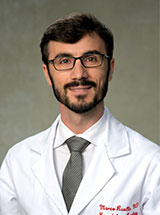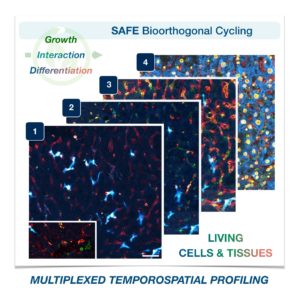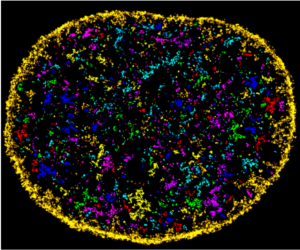by Ebonee Johnson
Kevin Johnson is used to forging his own path in the fields of healthcare and computer science.

If you ask him to locate his niche within these fields, Johnson, David L. Cohen and Penn Integrates Knowledge (PIK) Professor with appointments in Penn Engineering and the Perelman School of Medicine, would say “informatics.” But that doesn’t tell the whole story of the board-certified pediatrician, who has dedicated his career to innovations in how patients’ information is created, documented and shared, all with the goal of improving the quality of healthcare they receive.
Informatics, the study of the structure and behavior of interactions between natural and computational systems, is an umbrella term. Within it, there’s bioinformatics, which applies informatics to biology, and biomedical informatics, which looks at those interactions in the context of healthcare systems. Finally, there is clinical informatics, which further focuses on the settings where healthcare is delivered, and where Johnson squarely places himself.
“But you can just call it ‘informatics,’” says Johnson. “It will be easier.”
He mainly studies how computational systems can improve ambulatory care — sometimes known as outpatient care, or the kind of care hospitals give to patients without admitting them — in real time. If you’ve ever heard your doctor complain about the amount of time it takes them to input the information they get from you during your visit, or wondered why they need to capture this information during the visit in the first place, these are some of the questions Johnson is investigating.
“We’re taking care of patients but we’re getting frustrated by things that we thought these new computers should be able to fix,” says Johnson.” I think there’s a very compelling case for using engineering principles to reimagine electronic health records.”
Read the full story in Penn Engineering Today.
Kevin Johnson is the David L. Cohen University of Pennsylvania Professor in the Departments of Biostatistics, Epidemiology and Informatics and Computer and Information Science. As a Penn Integrates Knowlegde (PIK) University Professor, Johnson also holds appointments in the Departments of Bioengineering and Pediatrics, as well as in the Annenberg School of Communication. Johnson is the Vice President for Applied Informatics for the University of Pennsylvania Health System and has been elected to the American College of Medical Informatics (2004), the Academic Pediatric Society (2010), the National Academy of Medicine (Institute of Medicine) (2010), and the International Association of Health Science Informatics (2021).









